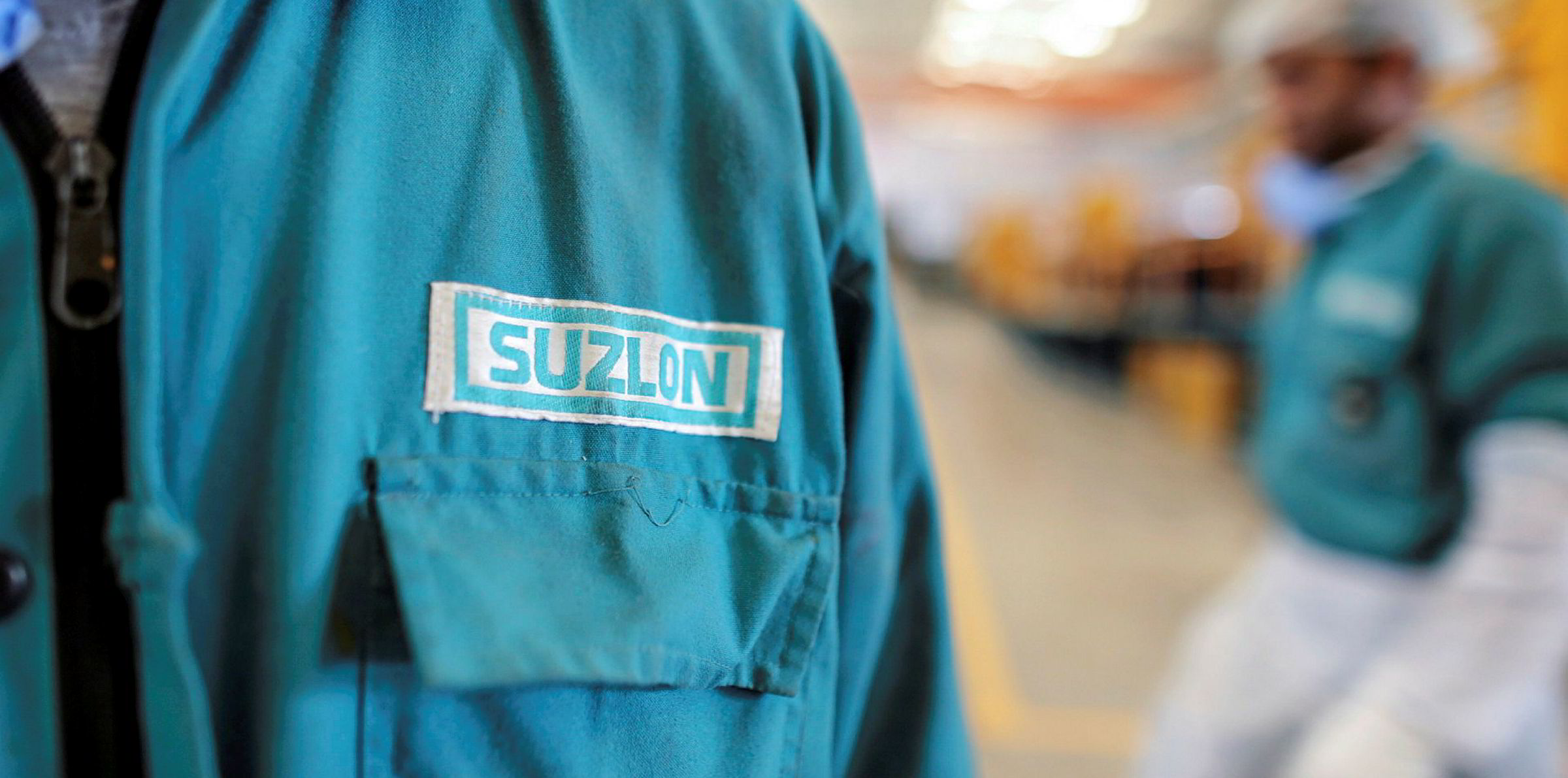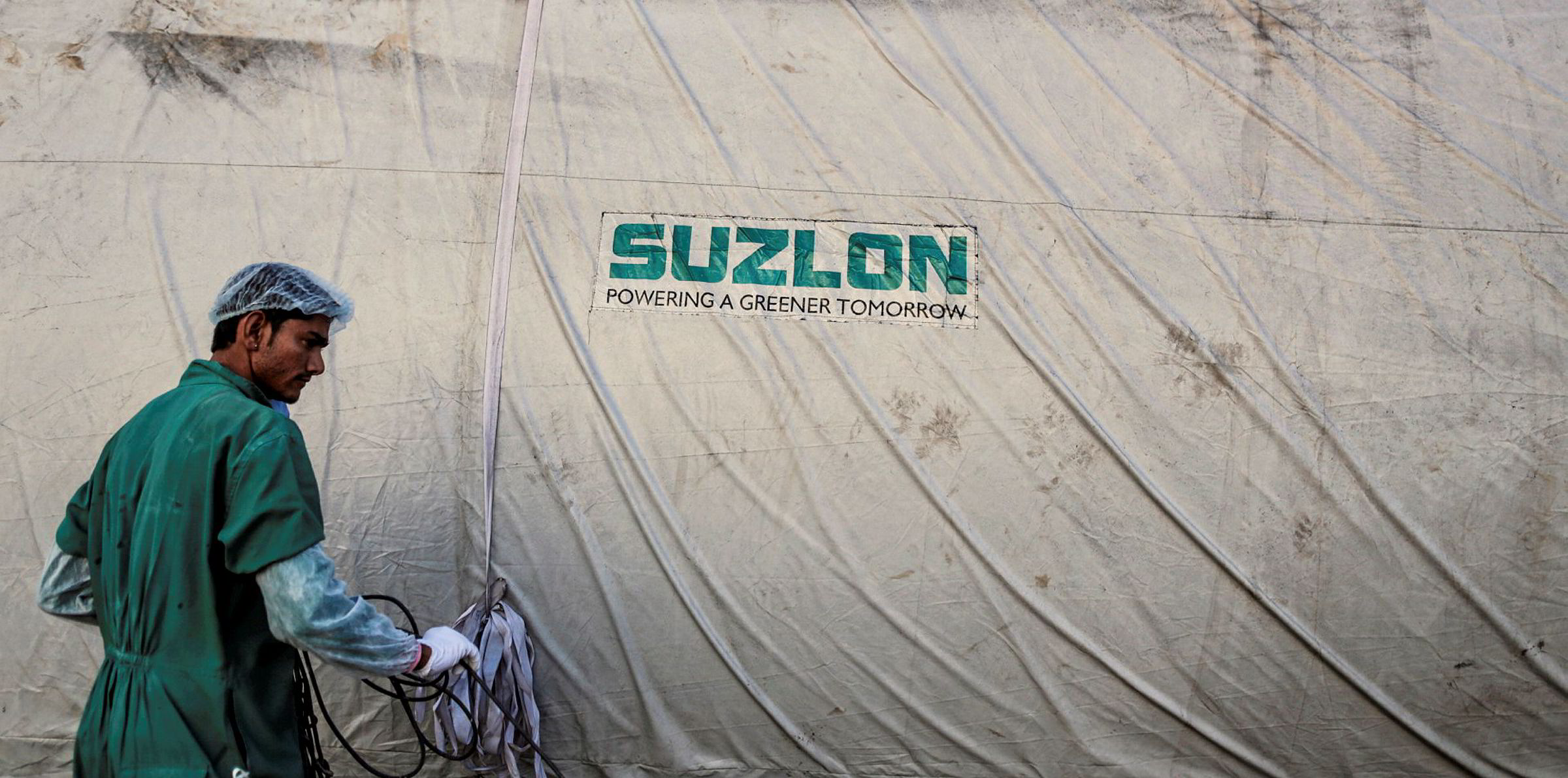Suzlon has tabled a debt reduction plan with its lenders based on a revised offer from an unnamed potential investor, its auditors confirmed, as the troubled Indian wind group started the new financial year with another loss-making quarter.
Suzlon – which has over the last few months been the reported subject of interest from Danish OEM Vestas and Canadian investor Brookfield Asset Management – has lodged a proposal with its creditors that envisages “infusion of additional equity in the company, purchase of a business line by the investor and waiver of a considerable amount of existing debts by the lenders”, said accountants Deloitte Haskins and Sells in a statement accompanying Suzlon’s first quarter financial statement.
The potential investor underpinning the debt resolution plan had returned to Suzlon with a revised non-binding offer after the 3 June lapse of an earlier proposal, said the auditor's statement. The earlier proposal was widely reported – but never confirmed or denied by either party – to have come from Vestas seeking a majority stake before talks broke down. The Danish OEM said at the time that “our industry-leading position means we are open to additional bolt-on opportunities to accelerate our growth strategy should such arise”.
Suzlon was also subsequently said to have entered talks with Brookfield until they foundered earlier this month.
Asked to comment about reports in Indian media outlets about a possible strategic involvement by Vestas in one of the local OEMs, chief executive Henrik Andersen in a results conference call with investors on Thursday declined to comment on specific cases, without ruling out the possibility of acquisitions altogether.
"In terms of local rumours on companies in the industry, we don’t comment on those. And if we do have something to comment on, we will send out appropriate company announcements," Andersen said.
"I won’t comment on speculation. We will always look at it, and look at a number of cases from time to time. If it comes to something, we will announce it."
Whoever the potential suitor is, Deloitte Haskins and Sells said Suzlon’s “ability to continue as a going concern is solely dependent on successful outcome of the aforesaid resolution plans”, which needs buy-in from lenders who are reportedly facing a ‘haircut’ of up to 44% if the proposal is accepted.
Suzlon told its investors: “We are committed and tirelessly working towards debt resolution and fixing the capital structure at a sustainable level and are exploring various funding options like raising fresh equity, disposal of subsidiaries, etc.”
The challenges facing Suzlon – which in July defaulted on $172m of bond repayments – were underlined by its first quarter financial results for the 2019/20 year, which saw it post another quarterly net loss of 3.35bn rupees ($47m), although that was lower than the 5.73bn deficit at the same April-June stage a year ago. But revenue was down sharply at 8.3bn rupees from a year-earlier 12.7bn.
Like others in the highly-competitive Indian market, Suzlon has been hit hard by a far from smooth move from tariffs to competitive bidding. CEO JP Chalasani said: “We continue to witness sectoral slowdown, owing to the prolonged industry transition to the bidding regime and policy uncertainty in few states. On the positive side,tariffs are stabilizing and the volume growth in the long‐term augur well for sustainable growth of the sector.”
Suzlon’s debt was downgraded in April by Indian financial ratings CARE, which noted the company’s “stretched liquidity position”. It added: “This has been on account of impaired volumes resulting from wind industry’s transitionary phase and delay in monetisation of assets.”
Note: Update adds Vestas CEO comments


